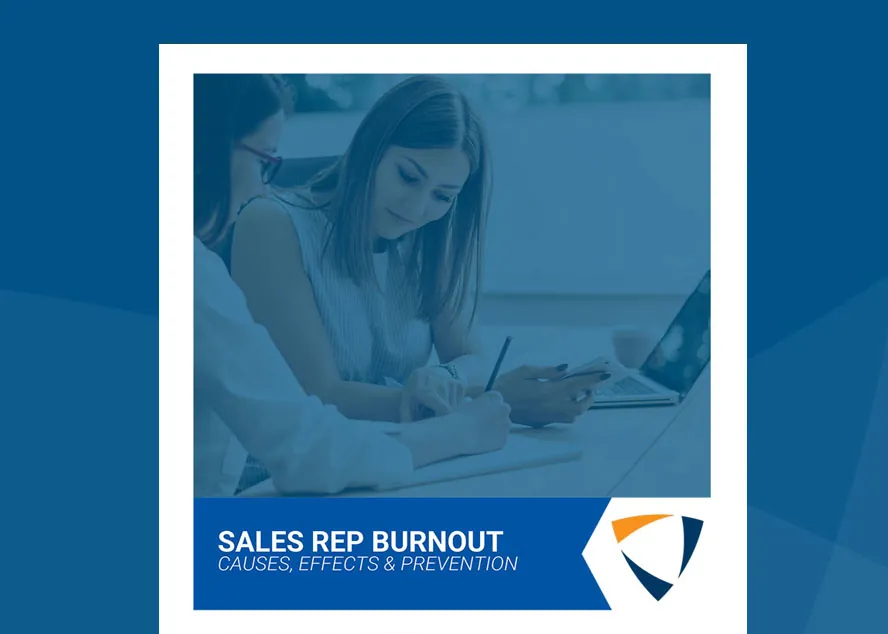The 9 Soft Skills Every Sales Professional Should Master

With the internet and social media, buyers are better informed than ever. While this can present challenges for sellers, it also presents opportunity for consultative sales pros to achieve more than a mere short-term sale. As buyers gain access and options, today’s sellers must offer more value. It is no longer enough to just emphasize a product’s features. Oftentimes, buyers have already read the specs, watched videos, and made comparisons, even before they connected with you. Now, the question for sellers is how to do more for buyers who need more than just a salesperson. Here are nine soft skills sellers must master to offer their clients greater value:
- Communication
The most important soft skill sellers must master is their ability to communicate. Whether the seller’s primary means of communication is over the phone, video conference, in person, or via email, every aspect of the sales process is dependent on sellers building a rapport with clients and establishing relationships. Without this, nothing else matters. Creating rapport makes for easier conversation, which builds trust and allows for deeper discovery. This also helps sellers form relationships. More than a foundation for sales, this positions sellers to solve problems their clients didn’t know they had. This goes beyond dollars and cents and into the heart of what makes sales a rewarding profession.
- Active Listening
In addition to communicating, another essential skill is learning to listen. Of course, we are all familiar with the stereotype of fast-talking, old-school salespeople. They were said to be silver tongued and could sell anything to any client, whether the client needed it or not. That’s just not going to work today. For one thing, buyers are too smart. They have access to more information and more options. Today’s consultative sellers should listen to discover what the client knows, but they must also go further, probe for the unspoken needs, see the bigger picture in ways the client cannot see for themselves. This requires less talking, more listening, and a greater focus on body language.
- Customer Service
We’ve all been there. You identify the problem. You come up with the solution. And everything that can go wrong still goes wrong. If it didn’t happen, there would be no need for customer service. Whether it’s broken boxes, delayed delivery, or mixed expectations, nothing defines a seller and an organization more than how they deal with unforeseen issues. When it happens, there is no substitute for sellers who make buyers feel secure. For buyers, that personal touch is more than a reliable product and an extended warranty. It is the security of knowing their salesperson is a committed professional who has their back. For sellers, it’s exceeding the short-term sale to achieve a long-term partnership.
- Consultative Nonselling
In today’s ultra-competitive marketplace, the old way of hammering home the benefits of a product is not enough. Instead of constantly pitching your products as the best and brightest, show clients you are a trusted advisor who has their best interests at heart. In some cases, this can even mean challenging their point of view. Of course, this should be done tactfully, and it requires the patience to hear them out, but being a consultant means you’re focused on their long-term best interests, not the quick fix. Above all, buyers will appreciate your honesty.
- Problem Solving
One of the biggest changes in the sales industry has been a shift of mindset. Where the old way featured sellers convincing buyers to make a sale, today’s sellers should see themselves as problem solvers over salespeople. This means working toward a result that is less about exchanging goods and services for money and more about removing barriers and providing solutions. Problem solving is a longer-term commitment that places the client’s needs above the seller’s needs. That primacy will always show through to buyers, resulting in stronger relationships and longer-term wins.
- Empathy
The ability to understand another’s difficulties is critical to forming a connection. This closely relates to my earlier points about effective communication and active listening. Whether it’s sharing a similar experience or exhibiting genuine compassion for someone else’s hardship (especially in today’s environment), the ability to express empathy does not come naturally to everyone. However, it is something sellers can cultivate. One of the difficulties is being sincere, not sentimental. Sellers must learn to listen patiently and adjust their body language to make the other person comfortable. Maintain eye contact. Lean a little in their direction, especially when virtual. This shows others they have your complete attention.
- Resilience
In sales, there is no sure thing. Sometimes, you do everything to align the decision makers, and everyone seems enthusiastic, but they still hold off. Perhaps you sit silently and stare at a blank wall or squeeze the stress ball extra hard, but the best sellers never stay down. They pick themselves up and make calls. In and of itself, this is not going to close a deal. It’s also not going to reverse the disappointment of a loss. However, the more times you get up, the stronger you will be. Sure, you should reevaluate the process, the steps you took. But the most important step is doing it again. It might be the next call or the one after, but the best sales pros know a win is coming.
- Persuasion
Though this word can have a negative connotation, it can be a positive force. Of course, convincing others to act against their self-interest or for your own selfish ends is wrong. However, when you find the solution that solves the problem and saves your client money, sellers are obligated to persuade them the deal is beneficial. The difference between good and bad persuasion is the intent. If the solution really is the best, you’re doing a good thing. From your stellar reputation to case studies and testimonials, use your resources to explain, highlight, and illustrate the value you can offer. When this is your persuasive technique, you’re doing it right.
- Decisiveness
Like persuasion, this word can have a negative connotation. If one is being bullheaded, doggedly sticking to a rash, ill-advised, or simply wrong decision, their decisiveness is a negative thing. However, for sellers who have done their research, evaluated the evidence, checked their calculations, listened to objections, and shared their findings, their decisiveness can be just what the client needs. There’s a world of difference between thinking you’re right and knowing your right. The best sellers have the knowledge, experience, and expertise to quickly process a great deal of information. Once they establish themselves as trusted advisors, their decisiveness expedites solutions and solves problems faster.
Though sales is one of the oldest professions, it is always changing. Each generation, buyers and sellers must remake their relationship into the model that is most mutually beneficial for their time. Of course, film and TV buffs know the long-held negative stereotype of loud, fast-talking, disingenuous salespeople, but that really is a thing of the past. In many ways, advancements in technology, such as the internet, made buyers savvier. As a result, sellers had to adapt or be left out of the equation. For many, that meant developing the soft, nonselling sales skills that do more to add value for clients. As a result, both buyers and sellers are better equipped to work together to achieve win-win outcomes.
Comments are closed.

- Account Planning (11)
- Awards (49)
- Client Testimonial (37)
- Personal Branding (19)
- Podcast (11)
- Research (70)
- Sales Career Development (87)
- Sales Coaching (156)
- Sales Consulting (137)
- Sales Culture (170)
- Sales Enablement (354)
- Sales Leadership (109)
- Sales Management (248)
- Sales Negotiation (16)
- Sales Prospecting (125)
- Sales Role-Playing (18)
- Sales Training (235)
- Selling Strategies (263)
- Soft Skills (70)
- Talent Management (94)
- Trusted Advisor (27)
- Virtual Selling (49)
- Webinar (9)



























Helpful comments, thank you for them.
Thank you, Elke!